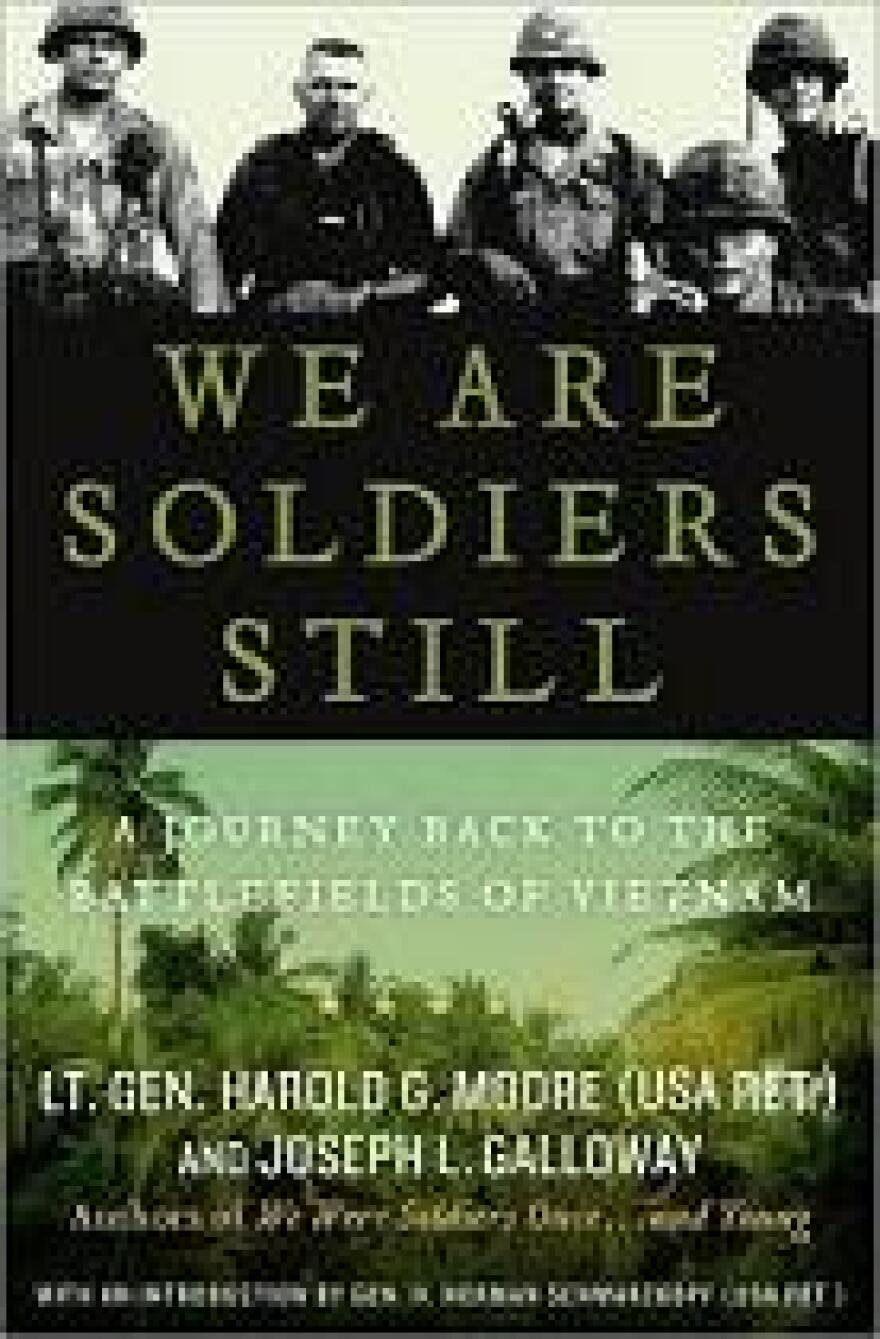We Were Soldiers Once? And Young was a national best-seller and was made into a Hollywood film starring Mel Gibson. That book was remarkable for a number of reasons.
By Don Noble
We Were Soldiers Once? And Young, the first book by Lt. Gen. Harold Moore and Joe Galloway, a UPI war correspondent, was a national best-seller and was made into a Hollywood film starring Mel Gibson. That book was remarkable for a number of reasons. First, it told the story of what was probably the first major engagement in Vietnam between our new 1st Cavalry Division (Airmobile) and two regiments of regulars in the People's Army of Vietnam. Second, the story is told by the commander on the ground, a Lt. Col. After the battle of the Ia Drang Valley, Lt Cols. usually commanded from several thousand feet up, in a command helicopter. The Americans landed by helicopter in the Ia Drang Valley (Ia means River in Vietnamese) in Landing Zone X-Ray, and were immediately attacked by vastly superior numbers of Vietnamese. The 1st Cavalry was Custer's unit at Little Big Horn, and it was not out of the question that Moore, like Custer, would be wiped out.
But over four days, in November of 1965, at LZ X-Ray and later at LZ Albany, the American troops fought ferociously, at close quarters, often hand to hand, and finally, after incurring ghastly losses and inflicting huge losses on the enemy, got out.
Moore makes an interesting analogy between this battle and the Spanish Civil War. Both, he says, were dress rehearsals for what was to come--in the first case WWII and, in Vietnam, the next ten years. He also acknowledges that Bernard Fall's now canonical study of the French defeat at Dien Bien Phu serves as a model and should have served as a warning to American policy makers.
Both sides learned. The Americans learned the tactics of jungle warfare and how to optimize helicopter transport and artillery and air support. The Vietnamese learned not to attack large American units and how best to shoot down helicopters and minimize artillery effectiveness by "grabbing the Americans by the belt"--fighting in so close that strikes could not be called.
Moore and Galloway, after the publication of that first book, decided, as old soldiers sometimes do, to revisit the battlefield of their youth. By the '90s, Vietnam was encouraging tourism and foreign investment, and had moved, somewhat like the Chinese, into an area between communism and capitalism.
Soldiers Still is the story of those visits.
Moore and Galloway walked the battlefields, even spent an eerie night there. They met with the General who commanded the enemy troops, the North Vietnamese historian of that battle, and Gen. Giap himself. The old soldiers from both sides talked, ate, drank, and came to understand and respect one another.
Moore and Galloway recount the emotional trip, and Moore, now a retired Lt. Gen., is free to express himself. The War in Vietnam was a huge mistake, he concludes. If we had had a solid knowledge of Vietnamese history, had understood that they had fought and driven out the Chinese and then the Japanese and then the French for a thousand years, we never would have gone there. Our national interests were not at stake and the Vietnamese would never give up.
I was also surprised that the old soldier, a veteran of the Korean and Vietnam wars now retired in Auburn, put forth very strong opinions on the war in Iraq.
I quote the General: "Those who brought us to this war with such certainty about how easy and quick it would end should be assigned to write long essays on these words from Erasmus: Dulce bellum inexpertis (War is delightful to those who have no experience of it). George W. Bush should have old Erasmus's words carved over the entrance to the planned $500 million Bush Presidential Library in Dallas."
Don Noble's book reviews can be heard each Monday on Alabama Public Radio at 7:35 a.m. and 4:44 p.m. Recently retired as English professor at The University of Alabama, Don's specialties are Southern and American literature. Don also hosts Bookmark on Alabama Public Television.


